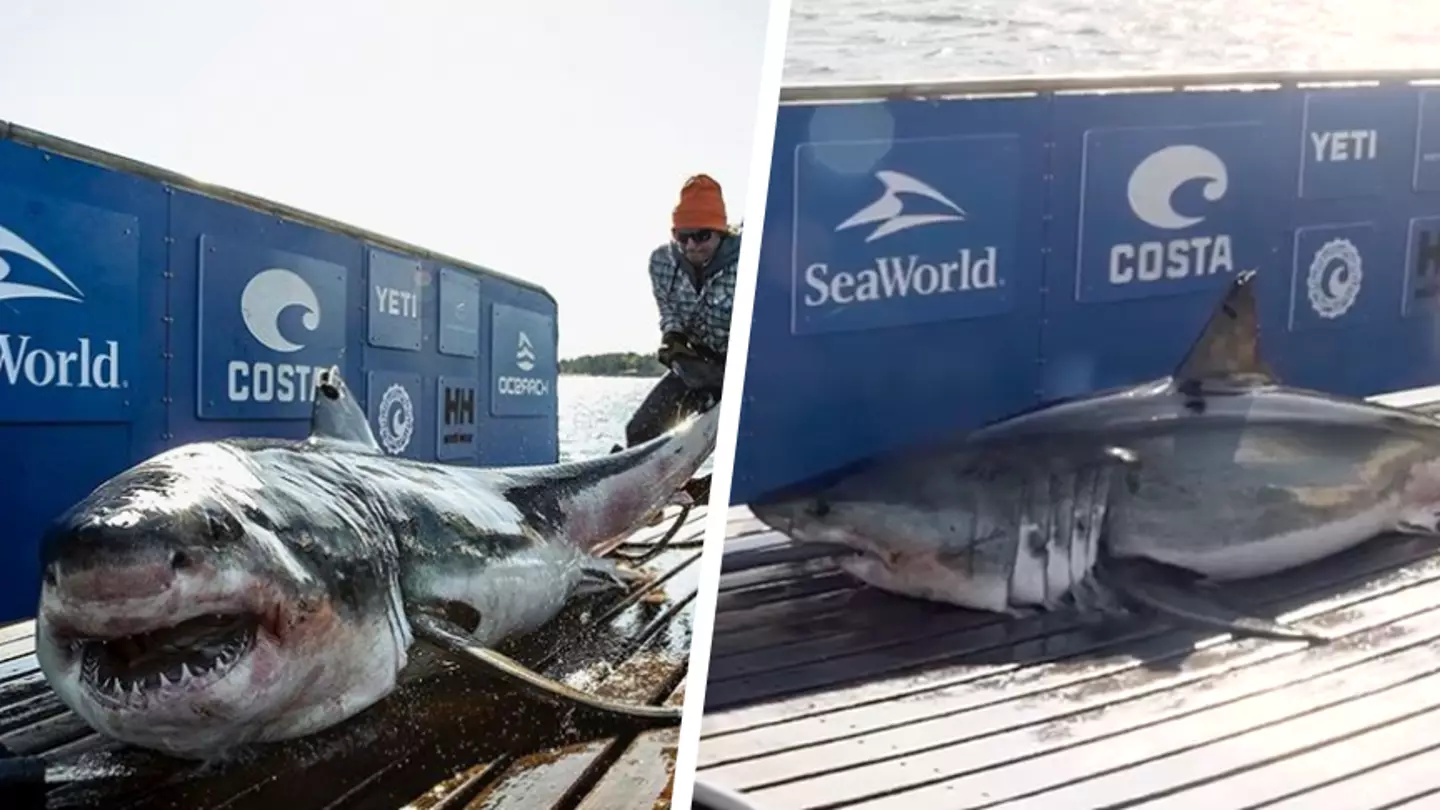
A huge great white shark weighing more than 450kg has been caught swimming off the shores of the US state of New Jersey.
The mammoth of an animal, named ‘Ironbound’, was spotted off the coast of New Jersey late last month.
Ironbound was first tagged on October 3, 2019, near the West Ironbound Island, where it gets its name from, situated near Lunenburg, Nova Scotia.
According to OCEARCH, the shark is estimated to weigh 450 kilograms and is 3.7 metres long - and that’s enough reason for me to never go swimming in the ocean again.
Advert
OCEARCH is a nonprofit marine research group that fits sharks with an electronic tracker that pings whenever they break the ocean surface.
Luckily for New Jersey residents, it pinged late at night when the likelihood of swimmers out at the ocean was low.
Bob Heuter, chief scientist at OCEARCH, believes Jaws Jr is likely to be around 20 years old.
Advert
Heuter said of the shark: “When we tagged him, he was impressive.”
However, Ironbound isn’t even the research group’s most formidable tagged shark - with Heuter saying they have tagged great whites as long as 5.3 metres and weighing as much as 1.8 tonnes.
Okay, sorry Ironbound, looks like the role of Jaws has already been filled.
OCEARCH has their tracker of various fish and marine wildlife available online, tracking animals such as sea turtles, whale sharks, great whites, and tiger sharks.
Advert
According to the tracker, Ironbound has travelled an estimated 20,921 kilometres since he was first tracked.
He’s travelled between Novia Scotia and the Florida Keys several times, with Heuter explaining that great whites from the Atlantic Ocean spend their summers on holiday near Canada and their winters in the Gulf of Mexico.
Heuter says the migration is an adaptation to ‘seasonal temperature fluxes, to where the food is’, while they theorise the sharks mate off the coast of the Carolinas during their journey.
Heuter said: “Mating season is over, we think, and Ironbound is on his way north to get into some good feeding ground and bulk up again for the next year.”
Advert
No need to bulk any more Ironbound, you’re looking buff as it is.
OCEARCH uses their data to learn about migration patterns and uncover potentially important details about sharks and their lives.
Heuter continued: “Sharks have been around for about 400 million years.
“They in many cases occupy what's called the apex predator position, in marine food webs. Just like on land, that is an important role in terms of keeping the lower parts of the food web healthy and balanced."
Topics: Animals
